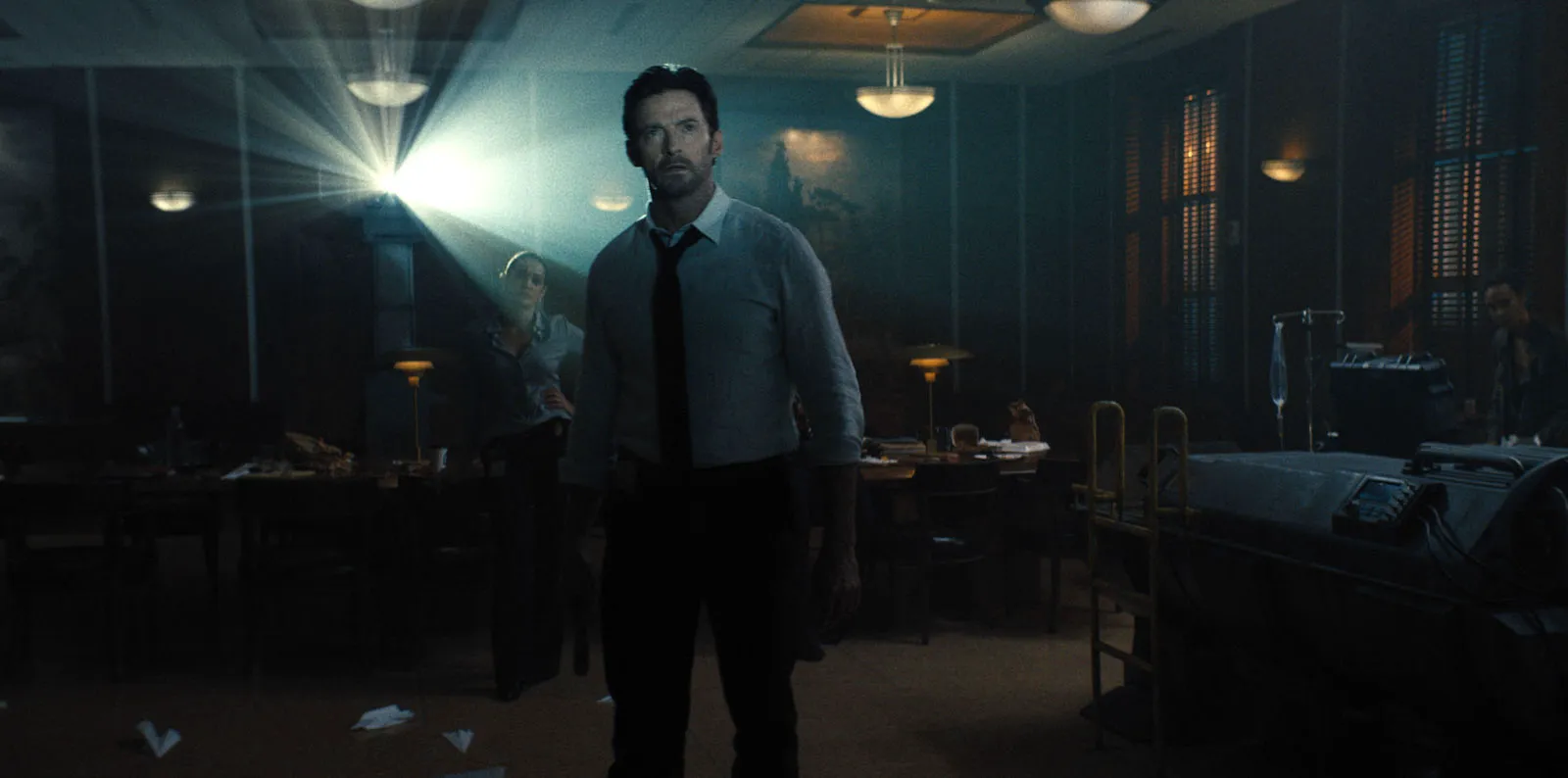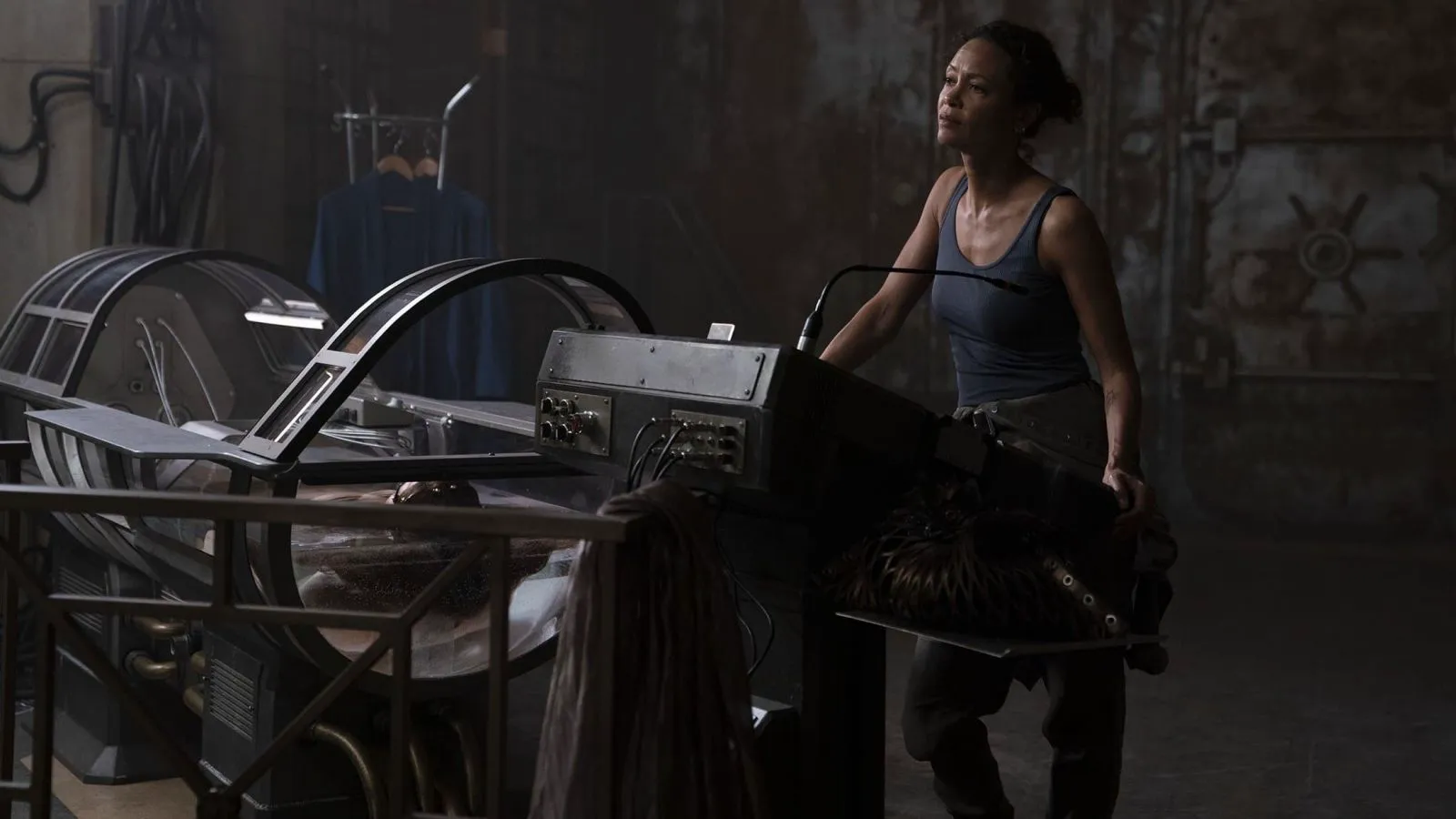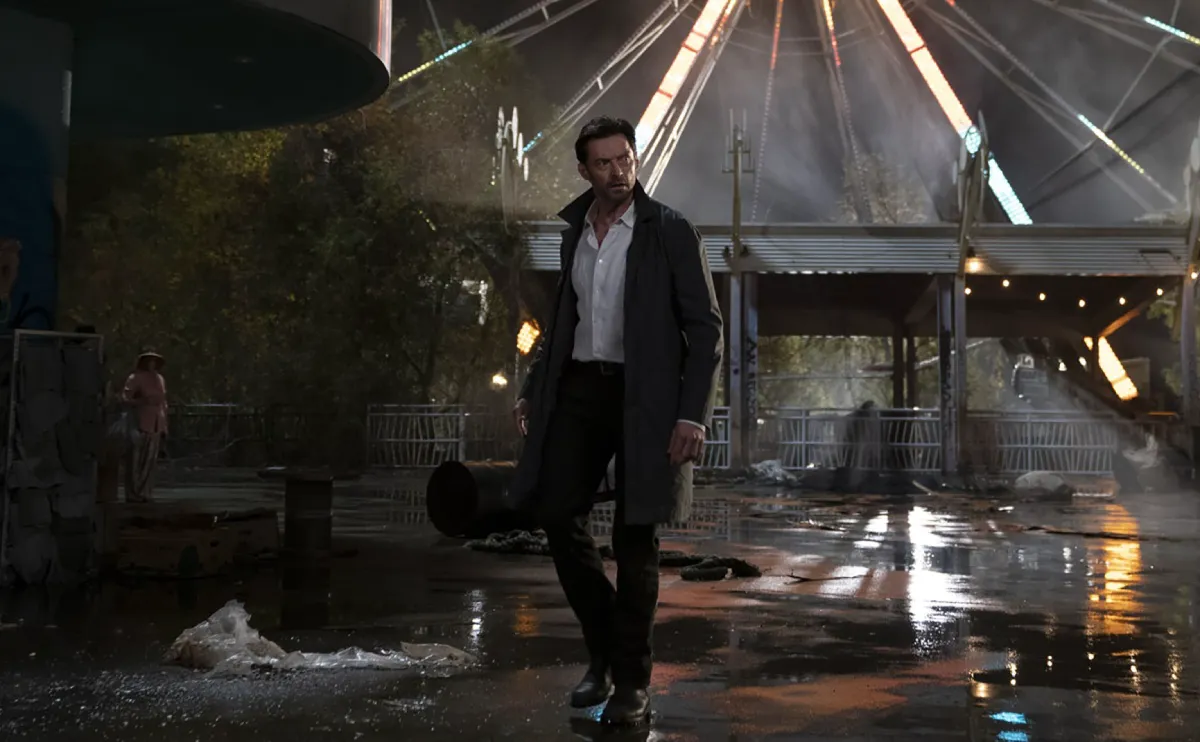In a near future ravaged by global warming and a bloody war, Nick Bannister (Hugh Jackman) used a special device to interrogate people by replaying scenes from their memories during World War III. Now, he lives in a partially submerged Miami, making a living with the same technology. Together with his assistant Watts (Thandiwe Newton), he offers people the chance to relive happy memories for a fee (or sometimes for free, as a favor). One day, the striking Mae (Rebecca Ferguson) comes to him, asking for help finding her lost keys. A romance blossoms between them, but it’s soon cut short when she mysteriously disappears. Nick spends months delving into his own memories, trying to find clues to her whereabouts, and the deeper he investigates, the more terrifying the secrets he uncovers.

Hugh Jackman as Bannister in “Reminiscence”
Is “Reminiscence” a True Noir?
There’s a long-standing debate in film criticism that has persisted for decades: Is noir a genre or a style? Is it defined by a set of obligatory plot tropes or by specific visual characteristics? While the best cinephile minds on the planet have grappled with this question, Lisa Joy, the writer and one of the creators of “Westworld,” offers her own rather definitive answer in “Reminiscence.” There are no Dutch angles or contrasting chiaroscuro lighting effects here, unlike the noir films of the past. The only visual nods to the genre are the perpetually wet streets and the fact that night is the only possible time of day. (Amusingly, both have logical explanations: the world is flooded due to global warming, and it’s too hot to be outside during the day.) Although the film is marketed as a science fiction noir, a blend of conceptual sci-fi and hard-boiled detective story, don’t expect a new “Maltese Falcon” or “Double Indemnity” from Joy. For her, film noir is more a collection of recognizable symbols and characters than anything else.

Thandiwe Newton as Emily in “Reminiscence”
Familiar Noir Tropes
A brooding detective, obsessively consumed by an investigation. A femme fatale in a bright red dress, clearly hiding something from the hero and the audience. Thugs and crooks, drugs, murders, and the specter of a recent war that has scarred the entire planet. Joy’s film isn’t even noir; it’s more like a memory of noir. It’s a collection of archetypal situations and characters, so conservative that it borders on parody at times. When Hugh Jackman launches into yet another languid voice-over monologue with phrases like “the past is just a string of beads,” it’s hard not to think that it’s all some strange postmodern joke.

Hugh Jackman as Bannister in “Reminiscence”
A Personal Story or a Collection of Borrowed Ideas?
It’s surprising that in all her interviews, Joy has told a very personal story about the film’s creation, saying that the idea came to her after finding something in her grandfather’s house. In the attic, he kept a photograph of a former lover whom he hadn’t seen in many years but still named the family home after her (while living with someone else). Lisa pondered the winding and mysterious nature of human memory, which led to the concept of a device that returns people to their fondest memories. But for a film with such a close connection between the author and the story, “Reminiscence” has surprisingly little that feels personal. Instead, the film gives the impression of a work cobbled together from a thousand borrowed ideas, from classic noir to, most notably, Kathryn Bigelow’s “Strange Days,” which Joy sometimes copies almost verbatim. The concept of a device that moves a person through their memories is used more as a formal tool to confuse the viewer with flashbacks within flashbacks within flashbacks, creating the illusion that Jackman’s hero’s straightforward investigation is more complex than it seems (in the spirit of both “Westworld” and the works of the director’s brother-in-law, Christopher Nolan).
A Metaphor for Hollywood’s Nostalgia
It’s far more interesting to view “Reminiscence” from a distance, in a meta-context. Then, the story of a world where people are massively indulging in nostalgia instead of living in the present becomes an elegant metaphor for modern Hollywood, which has long preferred to recycle old ideas and relive familiar stories countless times. Nick Bannister’s machine is essentially a flawlessly functioning streaming service, and he himself is an unhappy consumer, hiding from unpleasant experiences in his own memory. According to Lisa Joy, the world is no longer living but simply reproducing myths: about Orpheus and Eurydice, about the Great Flood, about hard-boiled noir detectives and femme fatales in red. And it doesn’t even matter if this idea is intentionally conveyed in “Reminiscence.” If it is, then we can praise the director for her insight; if not, the film still confirms the thesis. But I think Joy is not so simple: it’s no accident that she offers an elegant, albeit slightly bleak, solution to the problem in the end. She simply says that we need to gather our strength and stop telling myths, to cut them off in the middle, without waiting for the end. Let Eurydice and Orpheus be together for a while: after so many interpretations, they finally deserve it.